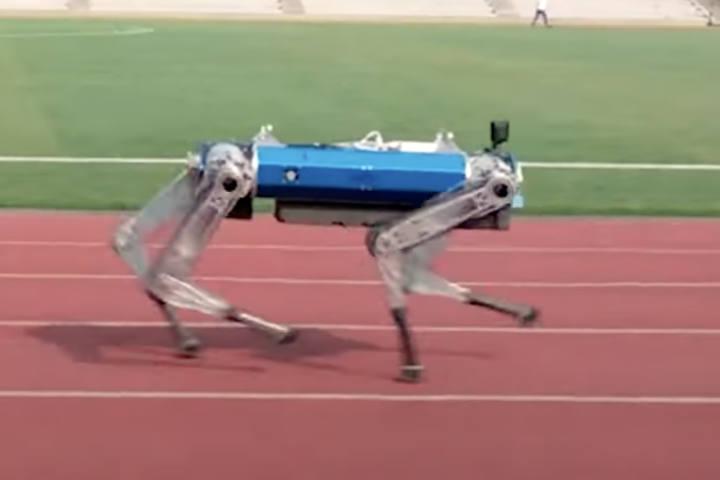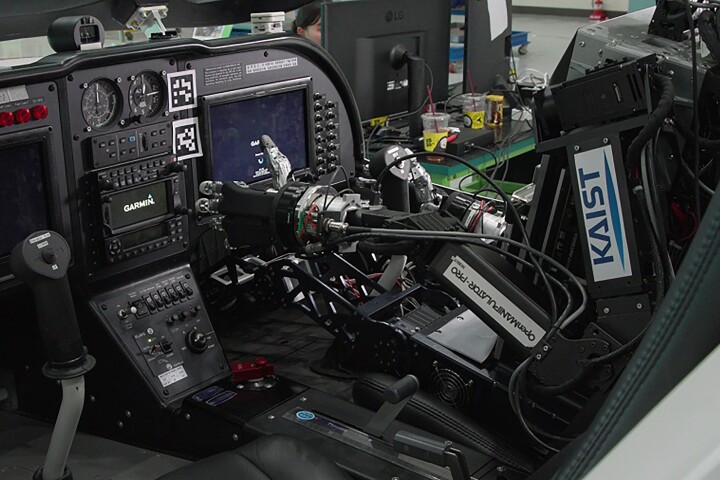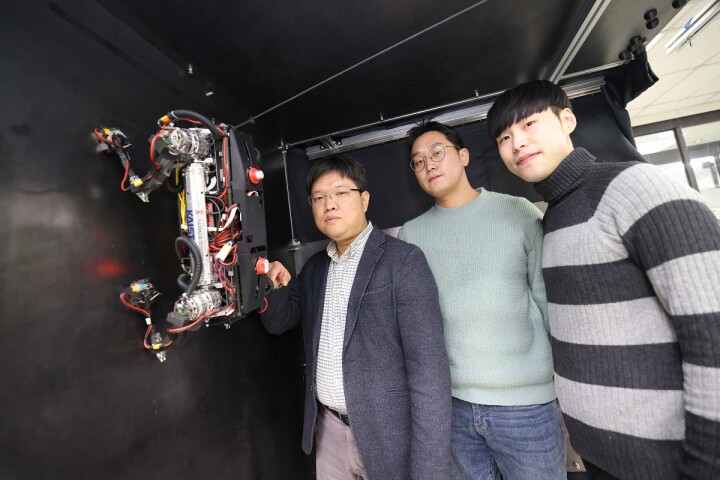KAIST
-
Researchers regenerated damaged bone in mice by creating a scaffold that combines a piezoelectric framework and the growth-promoting properties of a naturally occurring mineral. The novel “bone bandage” has wide-ranging potential applications.
-
Preventing or clearing ice build-up on surfaces is a major winter problem, as some areas are currently experiencing. Scientists at KAIST have now developed a new thin film coating made of gold nanorods that can passively melt ice using just sunlight.
-
A four-legged robotic dog called HOUND has demonstrated an unprecedented level of agility and speed, clocking the fastest 100-meter dash ever achieved by a quadruped robot and setting a new Guinness World Record in the process.
-
While intravenous needles need to be rigid in order to pierce the skin, that rigidity sometimes causes damage to the veins. A new needle addresses that issue by softening upon insertion into the patient's body.
-
A team of researchers has developed PIBOT, the world’s first humanoid robot pilot. Able to slide easily into the pilot’s seat and flip switches in the cockpit, the robot also uses AI technology to memorize flight charts and emergency protocols.
-
Scientists in South Korea have created what they call "the world’s smallest ball game," throwing individual atoms between two optical traps. The research could eventually make for more adaptable and dynamic quantum computers.
-
Many people are already creeped out by quadruped robots, which walk on four legs instead of rolling on wheels or tracks. Well, the MARVEL robot likely won't do much to change such feelings, as it can walk straight up ferromagnetic metal walls.
-
No matter how hard we may try, we can't really tell if we've got bad breath – and asking someone else to sniff our breath for us can be awkward. It's now possible that before too long, however, a portable "thumb-size" device could let us know.
-
Among other things, brain implants are capable of stimulating specific neurons, and of delivering medication to specific regions. An experimental new implant could overcome a common limitation of others, by transforming from rigid to soft states.
-
Medical implants that help regulate activity in the brain could go a long way to treating conditions like Parkinson's and depression, and scientists have just developed one with some very useful functionality.
-
A new study is providing insights into a cellular energy pathway linked to longer lifespan. The research, conducted in human cells and roundworms, raises the prospect of anti-aging therapeutics that can extend lifespan by activating this pathway.
-
As we continue to explore other planets, we're going to want to know not only what's on their surface, but also what's underneath it. That's where the Mole-bot comes in – it's a robot that autonomously tunnels its way through the ground.
Load More











